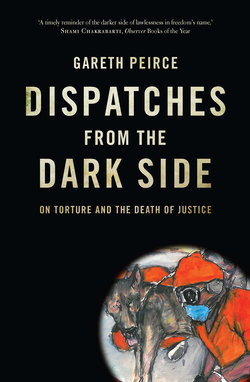Читать книгу Dispatches from the Dark Side - Gareth Peirce - Страница 9
На сайте Литреса книга снята с продажи.
Оглавление2
The Framing of al-Megrahi
It is, of course, now all about oil. Only a simpleton could believe that Abdelbaset Ali al-Megrahi, convicted of responsibility for the Lockerbie bombing, was not recently returned to his home in Libya because it suited Britain considerably to have him do so. The political furore has been very obviously contrived, since both the British and American governments know perfectly well the history of how and for what reasons he came to be prosecuted. More important, however, than the passing diplomatic storm is whether any aspect of the investigation that led to al-Megrahi’s original conviction was also about oil, or dictated by other factors that should have no place in a prosecution process.
The devastation caused by the explosion of Pan Am Flight 103 over Lockerbie, at the cost of 270 lives, deserved an investigation of utter integrity. Article 2 of the European Convention on Human Rights demands no less. Where there has been a death any inquiry must not only be independent, but also effective and subject to public scrutiny, to provide the basis for an attribution of responsibility and to initiate criminal proceedings where appropriate. In its absence instead, a number of the bereaved Lockerbie families have of necessity themselves become investigators, asking probing questions for two decades without receiving answers. They have learned sufficient forensic science to make sense of what was being presented at al-Megrahi’s trial and make up their own minds whether the prosecution of two Libyans at Camp Zeist near Utrecht was in fact a three-card trick put together for political ends.
Looking back, if the police investigation had been an entirely Scottish affair, with unrestricted access to all available information, without interference or manipulation from outside, perhaps the result could have been different. It is just possible, with a Scottish administration reeling from criticism heaped upon it both by England and the US for releasing the man convicted of the bombing, that a searching investigation conducted by a detached and truly independent enquirer, might restore to Scotland some integrity for the smallest force in the UK, the Dumfriesshire police, supported as it was by the selfless help and acute observations of the people of Lockerbie itself. Left to its own devices, it is arguable that Scotland might have achieved a very different target for suspicion and a very different conclusion. Instead, from the beginning, the investigation, and what were to become the most important aspects of the prosecution case against al-Megrahi, were hijacked by outsiders
Within hours of Pan Am 103’s destruction, the countryside around Lockerbie was occupied: local people helping with the search under the supervision of Dumfries and Galloway police realised to their astonishment that the terrain was dotted with unidentified Americans not under the command of the local police.
Every criminal investigation in Britain has essential standards that must be met; if in any aspects of the investigation they are not, those should never in principle become the building blocks for a prosecution. There must be precise notes made of each physical exhibit found and by whom; its subsequent movements must be tracked; each time an exhibit is inspected, a record must be kept. The rationale is obvious: without a precise record, interference, contamination or simple mistake, could jeopardise the ability of a prosecutor to rely on evidence that is presented as tangible and therefore potentially more convincing. For that reason, a crime scene must be sealed off until searches are complete, by identifiable tape or by its notional equivalent.
Those engineering the destruction of a transatlantic airliner in mid-flight might have believed that it would be likely to happen over the sea. Instead, Pan Am 103 was destroyed over the Scottish town of Lockerbie and its fall-out was scattered over an area too vast to cordon off. The first and most desperate searches were for the passengers: could any have survived? Volunteers included a police surgeon from Yorkshire who had driven to the site as soon as he heard the news; together with the local police, he and others searched non-stop for twenty-four hours. They found bodies, none showing any sign of life; the doctor labelled each of the bodies he found, more than fifty of them, noting the place of discovery. Once it was clear there were no survivors, a search for evidence of the explosion’s cause would begin.
